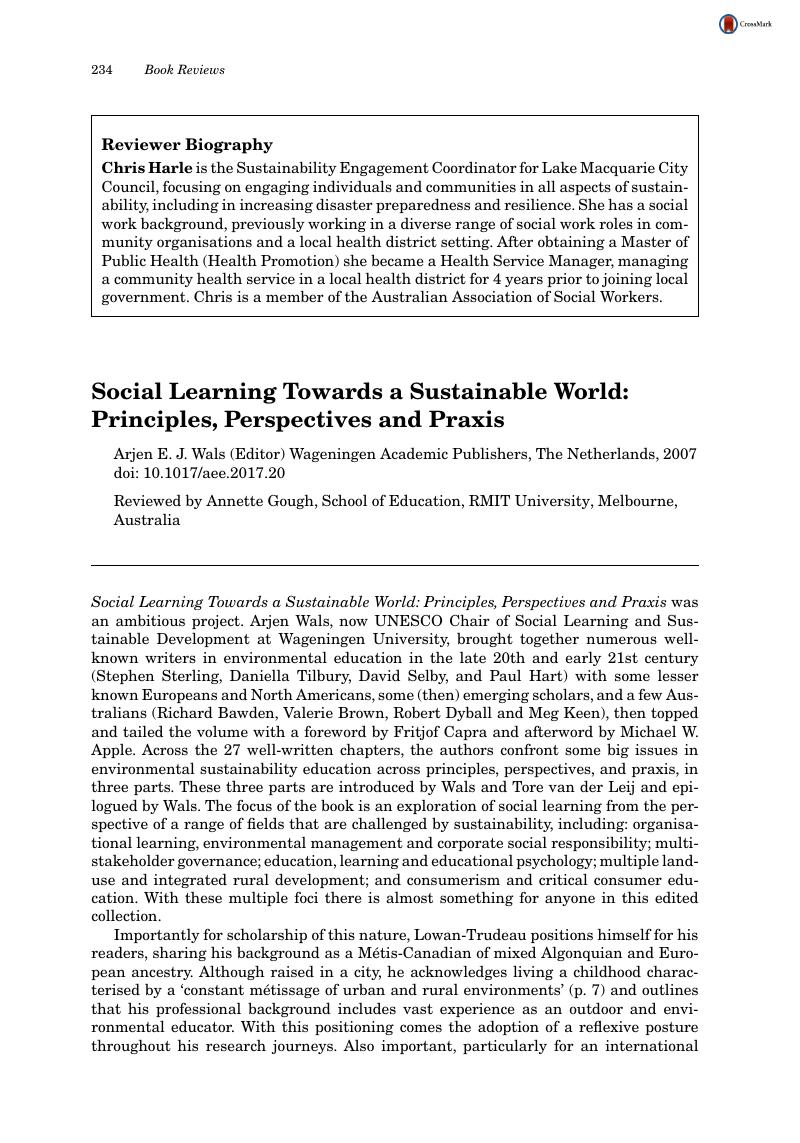Crossref Citations
This article has been cited by the following publications. This list is generated based on data provided by Crossref.
Gough, Annette
2017.
Social Learning Towards a Sustainable World: Principles, Perspectives and Praxis Arjen E. J. Wals (Editor) Wageningen Academic Publishers, The Netherlands, 2007.
Australian Journal of Environmental Education,
Vol. 33,
Issue. 3,
p.
234.
Lawuyi, T.
and
Yohanna, P.
2021.
An Assessment of Environmental Awareness in Selected Areas of Jos North Local Government Area of Plateau State.
Nigerian Journal of Environmental Sciences and Technology,
Vol. 5,
Issue. 2,
p.
535.
Kasza-Kelemen, Kata
Neulinger, Ágnes
Kiss, Gabriella
Veress, Tamás
and
Lazányi, Orsolya
2022.
A társas tanulás eredményei a fenntartható fogyasztást előmozdító budapesti gyakorlatközösségekben.
Vezetéstudomány / Budapest Management Review,
Vol. 53,
Issue. 1,
p.
2.




